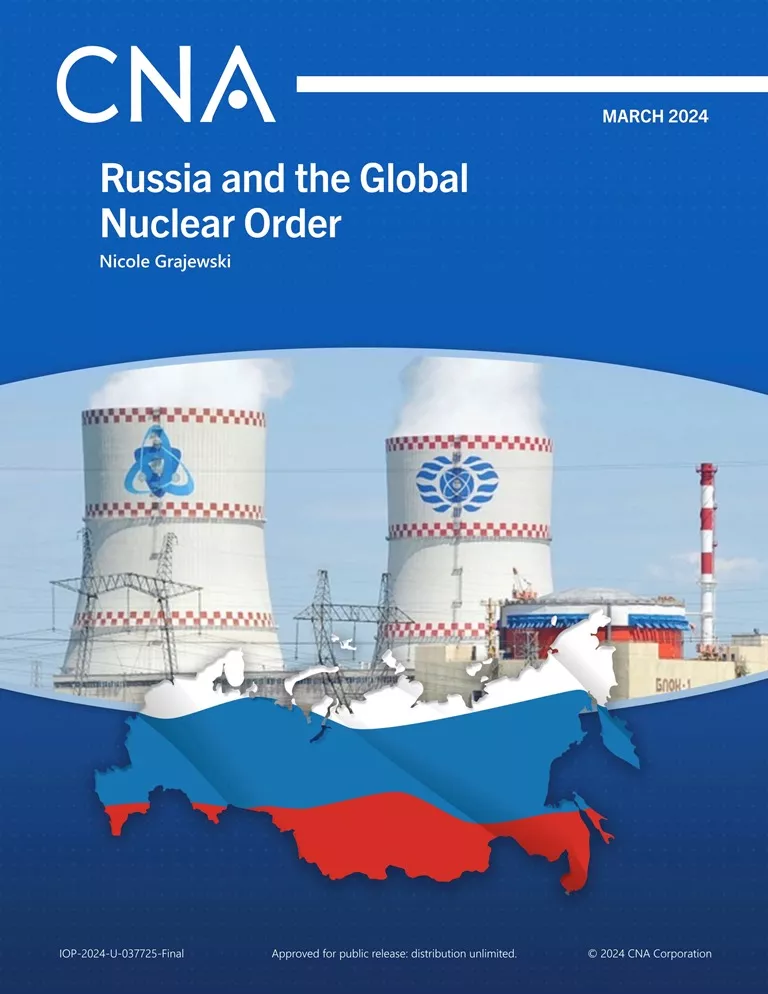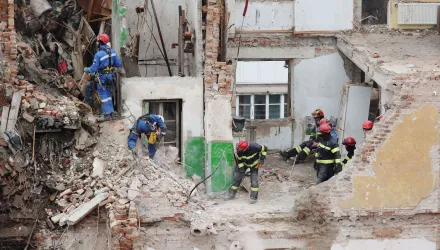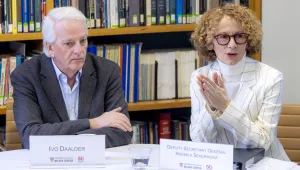
Overview
Russia's 2022 invasion of Ukraine illuminated the long profound shadow of nuclear weapons over international security. Russia’s nuclear threats have rightfully garnered significant attention because of the unfathomable lethality of nuclear weapons. However, the use of such weapons in Ukraine is only one way—albeit the gravest— that Russia could challenge the global nuclear order. Russia's influence extends deep into the very fabric of this order—a system to which it is inextricably bound by Moscow's position in cornerstone institutions such as the Nuclear Non-Proliferation Treaty (NPT) and the International Atomic Energy Agency (IAEA). From withdrawing from key treaties to stymieing resolutions critical of misconduct, Moscow has demonstrated its ability to challenge the legitimacy, relevance, and interpretations of numerous standards and principles espoused by the West.
This report scrutinizes Russia's global nuclear approach in the context of the war in Ukraine. The first part examines Russia's engagement in the global nuclear order, emphasizing Moscow's empowerment through institutional privileges within the fundamental regimes and its domestic perceptions. The report highlights how Russia's engagement in the global nuclear order reflects broader foreign policy themes of great power status, sovereignty, opposition to Western double standards, and selective adherence to treaties. The second part of this paper examines the evolution of Russia's interpretations of nuclear security, IAEA safeguards, and nonproliferation and highlights how Russia's engagement with the global nuclear order has been characterized by alternating phases of cooperation and contention, often rooted in differing interpretations of the order's rules from the West. The third part of this paper focuses on repercussions of the war in Ukraine on Russia's actions in the global nuclear order. It assesses (a) Russia's role in the growing disunity among the five permanent members (P5) of the United Nations Security Council (UNSC) and the linkage of nuclear issues with broader geopolitics; (b) Russia's contestation of established nuclear norms, presenting alternative interpretations that signal a strategic shift in international nuclear governance; and (c) Russia's strategic use of mimicry and the exploitation of double standards to emulate the policies of other nuclear powers in regard to the Comprehensive Nuclear-Test-Ban Treaty (CTBT) and North Atlantic Treaty Organization (NATO) nuclear sharing. Through these strategies, Russia questions and contests established nuclear norms.
Grajewski, Nicole. “Russia and the Global Nuclear Order.” CNA's Center for Naval Analyses, March 2024
The full text of this publication is available via CNA's Center for Naval Analyses.





